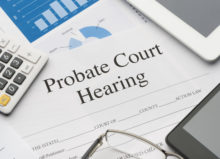Protecting Your Home – Part Three: Income Generation and Homestead

Never mix business and pleasure. Despite that adage, more often people transact business from home. But be careful! There is a delicate balance between income generation and residence with regard to homestead protections. After all, the homestead exemption applies only to the residence of the owner and the owner’s family.
In the past, the general rule was that if your home produced income, you could lose homestead. More recently, however, the courts look deeper. They ask what percentage of the property is residence and what portion generates income. The court then asks whether that income-producing portion can be “severed” from the residence.
What percent is residence and what percent produces income?
If you use all of your home as living space, the entire property qualifies for homestead. This includes the portion that is income generating. Think of a home office in the corner of your living room, a salon chair in your kitchen, or a pre-school in your lanai. Even though you are earning money out of your home, you still live in your entire home as well. The court understands that a person doesn’t abandon their homestead just because the business is conducted out of their home.
However, what if you reside in only a portion or a fraction of the property? What if you have one room set aside as an office to receive clients, and that office has an outside exit? Or if you rent out rooms in your home to boarders? What if you own a duplex or a triplex or even an apartment building, and live onsite? When this happens, the court asks a second question.
Where is the business and where is the home?
Sometimes income-generating space and residential areas are distinctly different and easy to separate. For example, if a person owns a duplex and lives in one unit and rents out the other unit out, the two residences are distinctly different. There are likely two different addresses and have two different utility bills. It is possible to draw an imaginary line between the two spaces and “sever” the two. The owner could sell those income-generating portions of his property and still remain in his residence. In these situations, the court would likely find that the portion of the property occupied by the owner qualifies for homestead protection, while the other portion would not.
Sometimes the distinction is not so easy. Suppose you have a home office, or suppose you rent rooms out. One cannot easily detach the income-generating portion of the residence by our same imaginary line. There is still one address and still one utility bill. You cannot sell one bedroom or office space out of a home and continue living in the home. Where the court cannot sever the two spaces—the residential portion and the income generating portion—the court is more likely to find that homestead protects the entire home.
Who wins when homestead status is challenged?
Homestead protection is written into the Florida Constitution. Further, the Florida Supreme Court construes the Constitution to liberally favor homestead protection. This means anyone trying to force the sale of a homestead faces some tough challenges. They must make a strong showing that the homeowner is not entitled to claim homestead. However, if they can show that the income-generating portion is separate from the residential portion of a home, they may have a case.
Income generation and homestead
With advances in technology and increased safety concerns, more people are transacting business from home. Just be careful! If you are using your home to generate income, it could affect your homestead status. If you are concerned, it may be the time to ask for some legal advice.
























